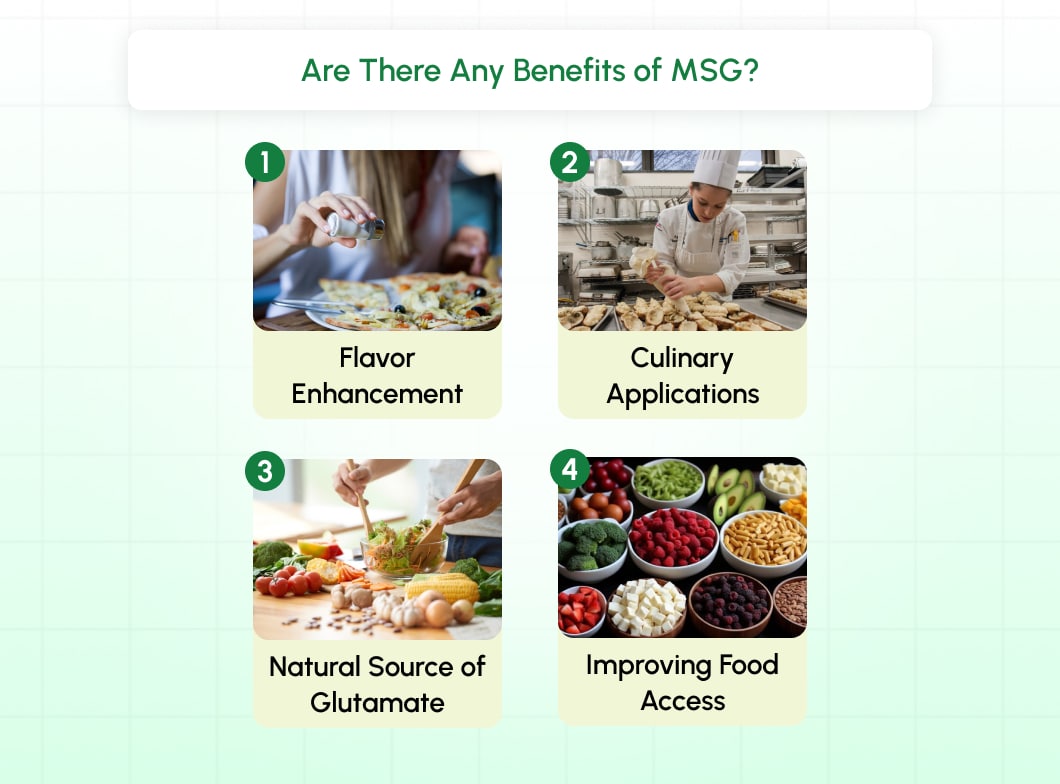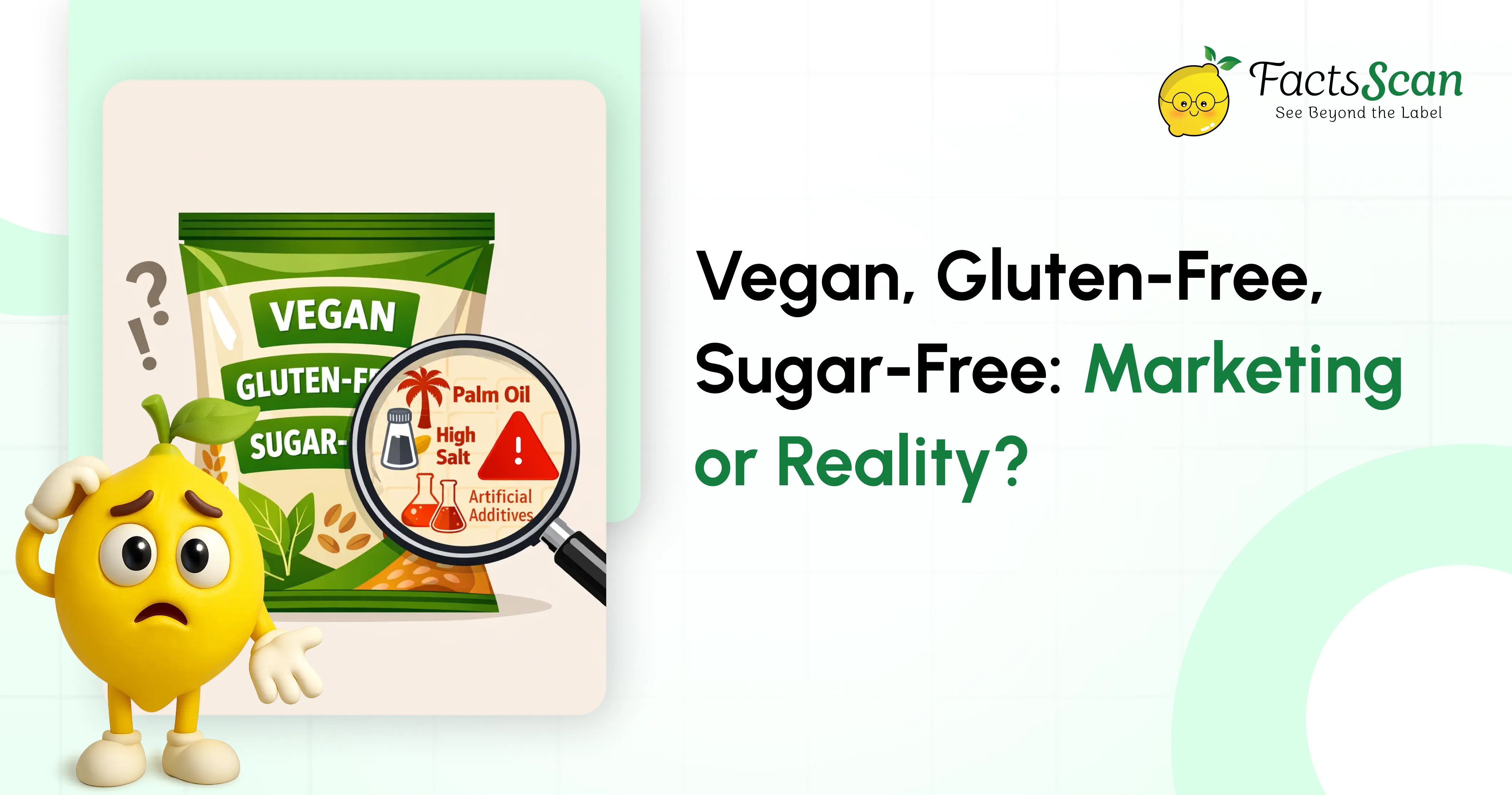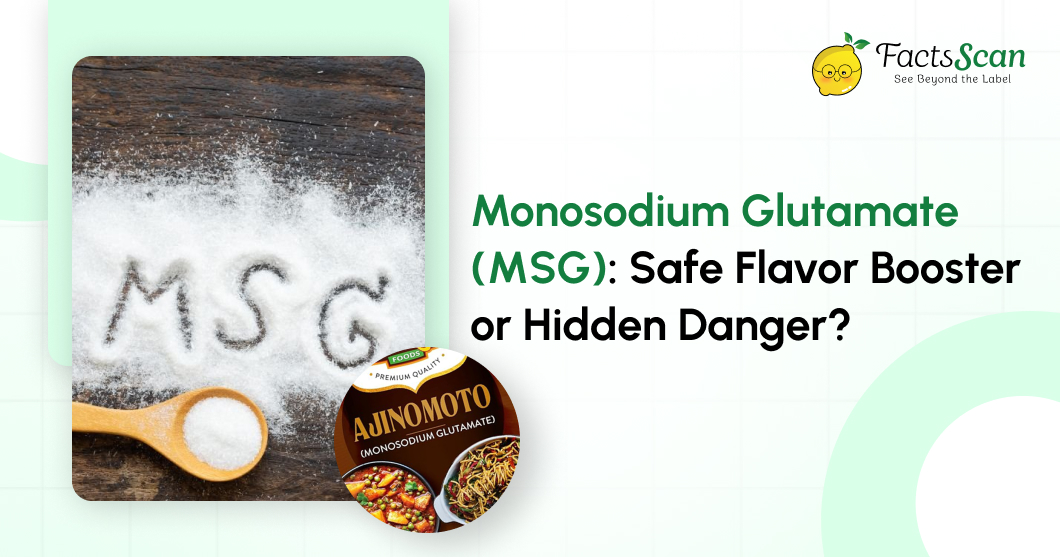Monosodium Glutamate (MSG): Safe Flavor Booster or Hidden Danger?
Summary :
Monosodium Glutamate (MSG) has been at the center of a decades-long debate. Is it a harmless flavor enhancer, or does it pose risks to health? This blog dives into the science, separating fact from fiction about MSG. We’ll explore what MSG is, what research says about its safety, and whether it deserves its controversial reputation. We’ll also touch on the potential benefits of MSG. By the end, you’ll have a clear, well-rounded understanding of the topic.
Introduction
Across cultures and cuisines, MSG has become a household name synonymous with savory, flavor-packed dishes. Many praise MSG for its ability to enhance taste, while others shun it due to concerns about health risks. Stories of Chinese Restaurant Syndrome sparked fear decades ago, leading to MSG-free labels on food products. But how much of this is grounded in truth, and how much is just a myth? This blog will cut through the noise to answer a pressing question: is MSG a culinary ally or a hidden danger?
What is Monosodium Glutamate (MSG)?
Monosodium glutamate, commonly known as MSG, is a flavor enhancer derived from glutamic acid, an amino acid naturally found in protein-rich foods like meat, cheese, and mushrooms. Chemically, MSG combines sodium (a component of table salt) with glutamate to create a white, crystalline powder that dissolves easily in water or food.
MSG is prized for its ability to add umami, the fifth taste, to food. Alongside sweet, salty, sour, and bitter, umami offers a savory depth that enhances flavor. You’ll often find MSG in processed foods, soups, canned vegetables, seasonings, and Asian cuisine. Its discovery dates back to 1908 when Japanese chemist Kikunae Ikeda isolated glutamate from seaweed soup, recognizing how it amplified flavor naturally.
Although glutamate is found naturally in food, MSG is its refined form. Because of this, the body processes it differently, leading to speculation about its effects on health.
What Science Says About MSG
The controversy surrounding MSG largely stems from anecdotal reports and a single letter published in The New England Journal of Medicine in 1968. A physician described symptoms such as headaches, sweating, and chest pain after eating Chinese food, a phenomenon later dubbed Chinese Restaurant Syndrome (now considered an outdated term). This sparked public scrutiny, though subsequent studies failed to confirm a causal relationship.
Scientific research has extensively investigated MSG, primarily focusing on its potential to cause adverse reactions. The U.S. Food and Drug Administration (FDA) categorizes MSG as Generally Recognized as Safe (GRAS), while the World Health Organization (WHO) and European Food Safety Authority (EFSA) concur that MSG poses no significant risk when consumed in moderate amounts.
Randomized controlled studies reveal that MSG sensitivity affects only a small percentage of individuals. Symptoms reported by MSG-sensitive individuals are typically mild and temporary, such as headaches or flushing, and often occur only when MSG is consumed in large doses on an empty stomach. For the general population, MSG consumption is not linked to long-term health issues or toxicity.
Additionally, MSG is chemically indistinguishable from the glutamate naturally found in many foods. Once ingested, the body metabolizes MSG as it would any other form of glutamate, providing little evidence to support the claim that MSG is more harmful simply because it is added to food.
Is MSG Actually Dangerous?
MSG’s reputation as a harmful additive stems largely from fear, misinformation, and cultural bias rather than scientific evidence. Most health authorities and scientific studies have affirmed its safety, but concerns still linger in the public consciousness.
For individuals who report sensitivity to MSG, their reactions are not life-threatening, and removing MSG from their diet typically resolves symptoms. However, these reactions are rare. Fears persist about MSG being linked to serious conditions like obesity, allergies, or neurological disorders such as Alzheimer’s and Parkinson’s disease. While limited studies have explored these topics, credible evidence to establish such links is lacking.
Some critics also argue that MSG, as a flavor enhancer, may encourage overconsumption of unhealthy, processed foods. This isn’t a direct fault of MSG but an observation of how it is commonly used in products high in sodium, fat, and calories. It’s important to recognize that moderation and a balanced diet play a more significant role in health than single ingredients.
Ultimately, for the vast majority of people, MSG does not appear to be dangerous. The myth of MSG as a harmful hidden danger seems more reflective of public fear than scientific reality.
Are There Any Benefits of MSG?

MSG isn’t just another chemical used to improve flavor. It comes with several underappreciated benefits.
1. Flavor Enhancement
MSG’s ability to amplify umami flavor allows for reduced reliance on salt without compromising taste. For example, foods prepared with MSG can contain up to 40% less sodium while delivering the same level of flavor satisfaction. This makes it a potential tool for addressing high sodium intake, which is a global public health concern linked to heart disease and hypertension.
2. Culinary Applications
Chefs and food industries use MSG to create robust, savory dishes, often with fewer or simpler ingredients. It’s versatile and pairs well with almost any cuisine, from soups and sauces to meats and vegetarian recipes.
3. Natural Source of Glutamate
MSG is not artificial. While its production has been industrialized for convenience, MSG originates from fermentation processes similar to those used to make yogurt, beer, or vinegar. Understanding this may make MSG feel less intimidating for those concerned about synthetic additives.
4. Improving Food Access
MSG allows food manufacturers to make cost-effective, shelf-stable products with enhanced taste. This can provide accessible, tasty food options for people on tight budgets or those in regions with limited fresh food availability.
Conclusion
Monosodium Glutamate (MSG) has long sparked debate, but most scientific research and global health authorities agree it’s safe when consumed in normal amounts. While some individuals may be sensitive to it, for the majority, MSG is just a flavor enhancer not a hidden danger. The key is awareness and informed choices. That’s where our app FactsScan comes in. It helps you scan any packaged food and instantly reveals details about its ingredients, preservatives, and additives so you know exactly what you’re eating. Download FactsScan today from the App Store or Google Play Store and start making smarter food choices, one scan at a time!
Ready to make Healthier Choices?
Download FactsScan now from the Google Play Store and App Store and take charge of your food choices.

Recent Articles

Sugar, Salt and Fat: Are You Consuming More Than You Think?
Packaged foods silently contribute excessive sugar, salt and saturated fat to your daily diet through hidden ingredients like palm oil and added sweeteners, often exceeding safe limits without your knowledge.

Vegan, Gluten-Free, Sugar-Free: Marketing or Reality?
Vegan, gluten free and sugar free labels attract health conscious shoppers, but these marketing claims do not guarantee nutritional quality and often hide excessive palm oil, salt, saturated fat and artificial additives.

Why Every Household Should Use a Food Scanning App?
Modern households face hidden risks in packaged foods like palm oil, excess salt, and allergens. A food scanning app helps families make safer, informed choices by instantly decoding complex labels and identifying harmful ingredients before consumption.
 09 May 2025
09 May 2025 6 Min Read
6 Min Read 







